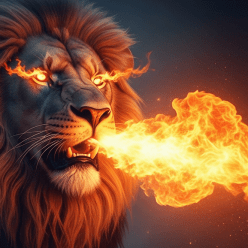Scriptures often emphasize God’s omnipresence and sovereignty, stating that “everything” belongs to God and that all things are from Him, through Him, and to Him.
Romans 11:36: For of him, and through him, and to him, are all things: to whom be glory for ever. Amen.
Psalm 24:1: The earth is the Lord’s, and the fulness thereof; the world, and they that dwell therein.
Colossians 1:17: And he is before all things, and by him all things consist.
Jeremiah 23:23-24: Am I a God at hand, saith the Lord, and not a God afar off? 24 Can any hide himself in secret places that I shall not see him? saith the Lord. Do not I fill heaven and earth? saith the Lord.
Ephesians 4:6: One God and Father of all, who is above all, and through all, and in you all.
Hebrews 2:10: For it became him, for whom are all things, and by whom are all things, in bringing many sons unto glory, to make the captain of their salvation perfect through sufferings.
Is God… everything?
The Molecule, The building blocks of everything.
(mòl´î-ky¡l´), smallest particle of a compound that has all the chemical properties of that compound. Molecules are made up of two or more atoms, either of the same element or of two or more different elements. Ionic compounds, such as common salt, are made up not of molecules but of ions arranged in a crystalline structure. Unlike ions, molecules carry no electrical charge. Molecules differ in size and molecular weight as well as in structure.
Atom
The smallest unit of a chemical element having the properties of that element. An atom contains several kinds of particles. Its central core, the nucleus, consists of positively charged particles, called protons, and uncharged particles, called neutrons held together by the {{{{strong force}}}. Surrounding the nucleus and orbiting it are negatively charged particles, called electrons. Each atom has an equal number of protons and electrons unless it has been ionized. The nucleus occupies only a tiny fraction of an atom’s volume but contains almost all of its mass. Electrons in the outermost orbits determine the atom’s chemical and electrical properties. The number of protons in an atom’s nucleus is called the atomic number and determines which element it is. The number of nucleons (protons and neutrons in the nucleus) is the atom’s mass number.
You see, mankind has actually found the living God in physical reality long ago and can only describe him as a “Strong Force”.

